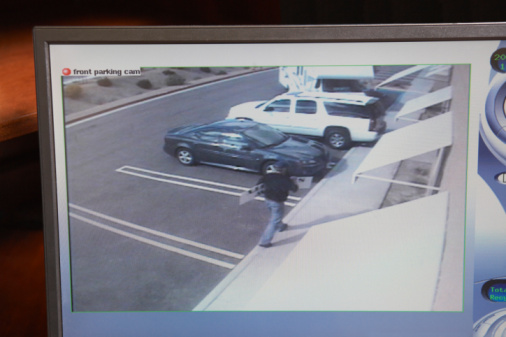
Let’s look at ways to respect privacy during CCTV monitoring. Whether you’re managing a commercial or residential property, there will always be concerns about safety and security. While certain responsibilities may fall on your tenants, there is a good chance that there will be areas, such as parking lots, lobbies and similar public spaces, for which you will be responsible. For these situations, you may choose a closed circuit television (CCTV) system not only to catch crimes as they occur, but also to deter them from ever being attempted. However, if you use CCTV equipment, it is extremely important where you choose to install it, as ill-advised camera placement can potentially lead to costly invasion of privacy suits by your tenants or their guests.
Download: Respecting Privacy During CCTV Monitoring (pdf)
Expectation of Privacy During CCTV Monitoring
CCTV cameras are legal to use in public areas because they are just that—public areas. When an individual is in a public area where they can be clearly observed by those around them, they cannot have a reasonable expectation of privacy. However, in areas deemed to be personal spaces, individuals do have a right to expect a certain amount of privacy. Most commonly, private spaces are places like a person’s home or a rented hotel room in which, by law, an individual can expect a certain protection from unwanted intrusions. Since people can expect privacy in their own homes, where you position cameras is extremely important
when dealing with residential properties. This means that cameras should never be installed in living spaces; it also means that cameras installed in public spaces should not be able to monitor events going on inside a person’s residence. For example, this means that a camera placed in a parking lot should not be aimed into a tenant’s window. Even if the window is open, the tenant still has a reasonable expectation of privacy in their own home.
Problems can also arise at commercial properties when it comes to CCTV placement in private spaces that exist in public settings. Any use of CCTV equipment in a tenants’ rented space should be discussed with them during the leasing process. Even though they may be operating a public venture in the space, they still are entitled to a certain amount of privacy. Also, if you provide public restrooms at a facility, those who use them have a reasonable expectation of privacy, so cameras
should not be placed in these areas.
Notify Tenants During CCTV Monitoring
A good way to protect yourself from invasion of privacy claims is to establish procedures that lower the expected amount of privacy. Post signs notifying the use of security cameras on the premises. Many privacy cases involve a discrepancy between the amount of privacy an individual believes they were entitled to and how much they were actually provided with. Proper notification can make it clear as to what expectations they can have for their privacy upon entering an establishment.
Also make sure you notify tenants of the extent of your CCTV monitoring before they sign the lease. Accurately disclosing this information upfront reduces the risk of liability. Since they entered into the lease with a full understanding of the extent of your CCTV use, it will be harder for them to raise objection to it at a later date.
Create a Policy Detailing Rights to Privacy During CCTV Monitoring
Establishing a CCTV policy can also help. The policy should outline the provisions for camera placement and proper camera use. By instituting a policy for CCTV use, camera operators will know what practices are acceptable and which could increase the risk for litigation.
Learn More About Respecting Privacy During CCTV Monitoring

Brian Blaston
Partner
Hardenbergh Insurance Group
phone: 856.489.9100 x 139
fax: 856.673.5955
www.hig.net


